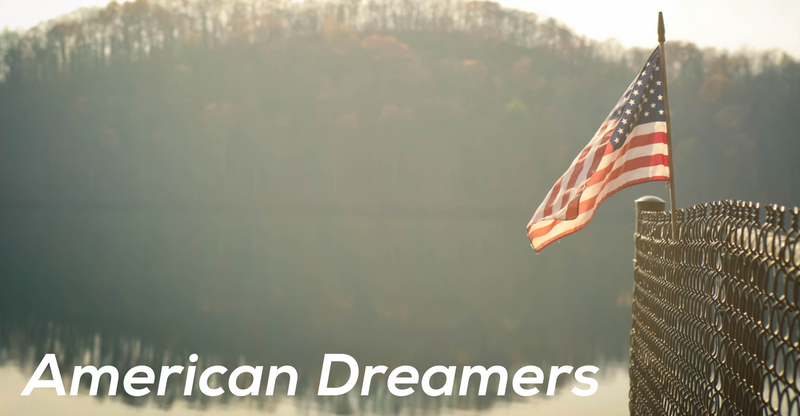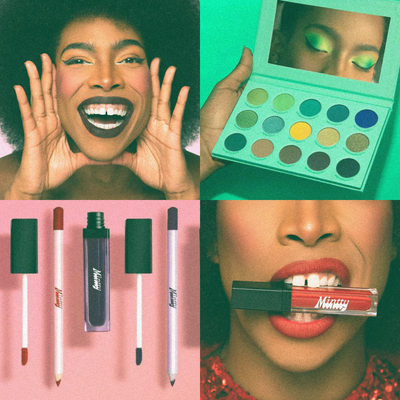“Going back is a death sentence.”
So says Adonias Arevalo, a 26-year old undocumented immigrant who, like 800,000 others, may face deportation. Though he’s paid his taxes, grown up in Houston for more than half of his life, gone to an American college, in the eyes of this country, he’s still not legally here.
Earlier this week on Tuesday, Attorney General Jeff Sessions announced that the Trump administration would be rescinding the Deferred Action for Childhood Arrivals (DACA) program. It’s an act that President Barack Obama instated in 2012 as a way to protect young undocumented immigrants, who call themselves DREAMers after the DREAM Act of 2001. The act was a legislative proposal that would help undocumented young people find their way into permanent residency.
“We are a people of compassion and we are a people of law,” Sessions said Tuesday. Opponents of DACA, like Sessions, have said for years that the act takes away jobs from American citizens and provides benefits to those who unlawfully entered the country.
“There is nothing compassionate about the failure to enforce immigration laws. The compassionate thing is to end the lawlessness, enforce our laws, and, if Congress chooses to make changes to those laws, to do so through the process set forth by our Founders in a way that advances the interest of the nation.”
For Adonias, who’s worked to support his family since he was 14, this could mean being forced back to El Salvador, a country with the most homicides per capita in the world. It’s the same place where gang members once killed his father. It’s also a place that is virtually inhabitable for queer people like Adonias. With LGBTQ individuals targeted, it’s one of the most dangerous places in the world to be queer.
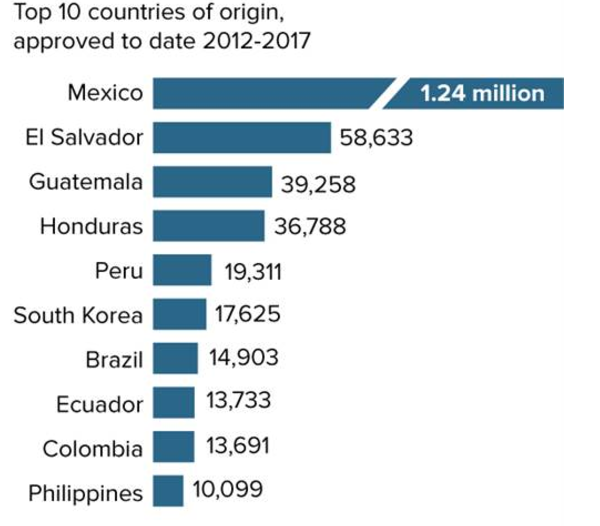
“This has always been real for me and the thought does scare me,” he tells Very Good Light.
The entire erasure of DACA, President Obama’s policy from 2012, would mean he’d go back to a country that does not want him. Under DACA, Adonias was able to graduate from the University of Texas, Houston as well as become a productive member of society. Today, he’s an organizer at the Arizona Dream Act Coalition in Phoenix, where he fights for other immigrants’ rights.
To be eligible, applicants like Adonias had to have arrived in the U.S. before they were 16, lived since June 15, 2007 and could not have been older than 30 in 2012.
DACA allows immigrants like Adonias to become productive members of American society just like the rest of us. They’re given a valid driver’s license, the ability to go to American colleges and gain jobs while also paying taxes. It does not though, give them an easier path to citizenship.
While President Trump recently tweeted all was safe for the next six months he also announced he would terminate DACA completely on March 5, 2018. That means congress has six months to find a solution or to deport all 800,000 completely.
The thought of DACA being overturned makes Adonias and the hundreds of thousands of others feel uneasy. Very Good Light reached out to three young men across the country whose lives would be completely changed with the overturn of DACA. Though they’re from different backgrounds and professions their stories are all the same: they’re fighting for the American Dream. Below, their stories as told by them.*
For more information on DACA visit the government’s own website here.
Adonias Arevalo, 26, Phoenix
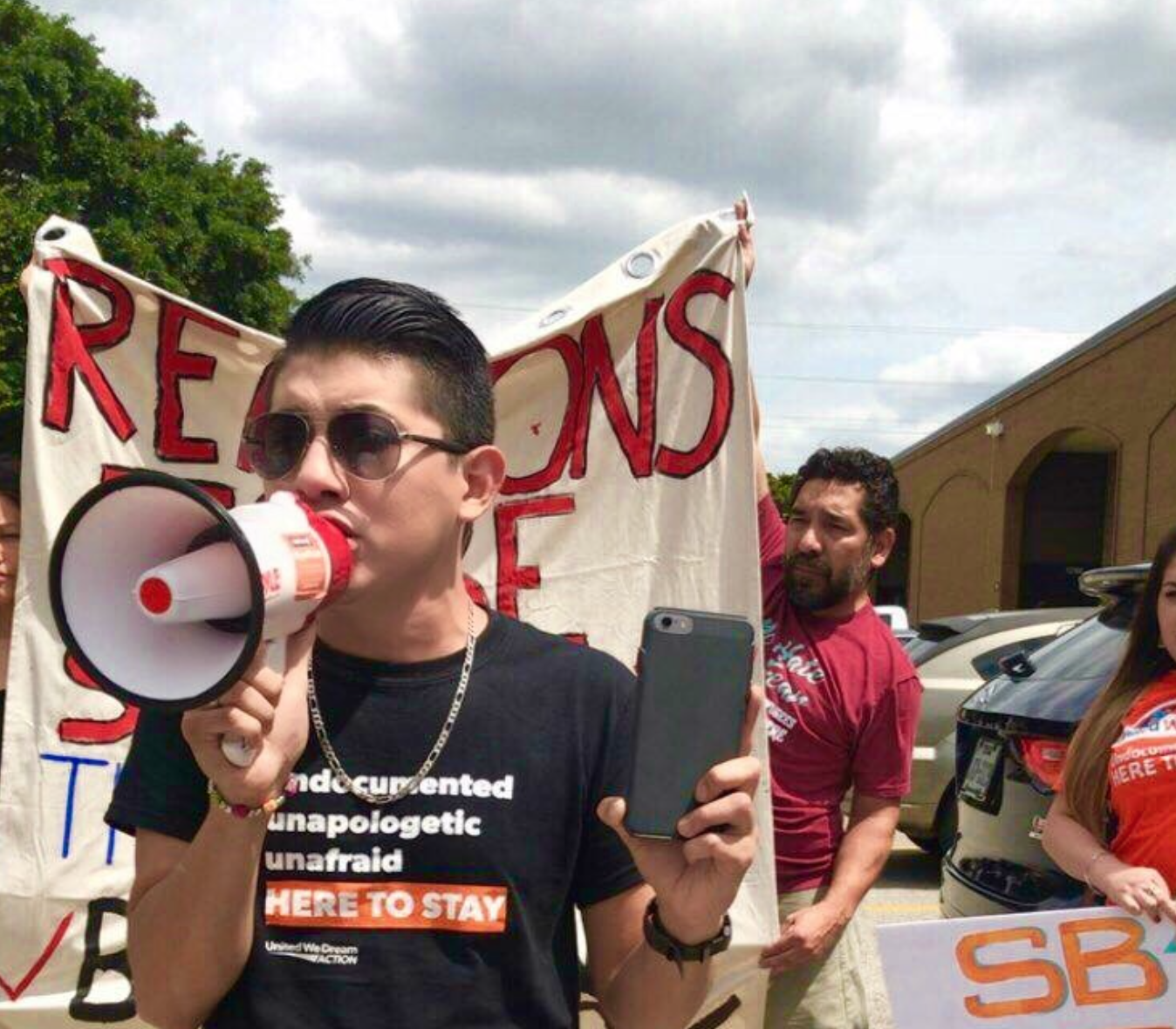
I left El Salvador when I was 11. There’s a lot of crime there, it’s the murder capital of the world. Your chances of getting killed it huge. Gangs rule the country and they go through cities demanding what they call ‘rent.’ You have to pay them to live there and when they asked my dad one day, he refused. That’s when they shot him. They don’t play no games.
My mom was really afraid to continue living there as she received threats of death on her and my family. That’s when she went to Mexico and crossed the border [into the U.S.]. At that time, I went to live in Mexico as well as it was safer than El Salvador where pastors and churches offered to help me. As an undocumented person, it’s $7,000-$10,000 to have a guide cross you into the United States. My mom saved up money and waited for me in Houston for years to get me across.
I remember that day. She came down to get me as she didn’t want me to cross by myself. There are countless stories of abandoned children at the border. We were with our guide who find times throughout the day where the border isn’t as secure. You cross the river and start swimming and hiding so you aren’t caught. There are many guards who shoot and kill those crossing over. We were lucky when we crossed. It was around 6 a.m. and the border wasn’t secured.
I think that the American Dream is about challenging the system.
I came to Houston and life for the first year and a half was a struggle. I was bullied for many reasons. I also saw how my mom had three jobs and struggled so much to put food on the table. She was also saving to get my sister, still in El Salvador, across the same way.
When I was 14 my mom had an accident with the company she was working with. It was a factory where she was making tortillas. They decided to close and never paid with her and left her with $20,000 in debt. That’s when I started working. I pretended I was 16 and started washing dishes. I worked throughout high school and eventually went to college at the University of Texas, Houston. I graduated with a political science degree.
I think that the American Dream is about challenging the system. It’s about overcoming the struggles and that. I think that’s done through determination and knowing that we live in a broken system and trying to change that. I think that people are against people like me because they haven’t had a conversation to understand what it’s like. People like me don’t leave their countries because the heck of it. There’s no other choice.
DACA makes me feel closer to what I’ve been dreading all of my life. I’m a couple steps towards deportation. I don’t want to be deported to a country is a death sentence. It makes me feel angry as well that we’re living in a moment of white supremacy but it gives me hope that people of color have always been resistant through that.
When you deport LGBTQ folks back it’s a death sentence. Trans women and queer people being killed every day. Countries like mine have made being me a crime. You can be jailed. Our countries don’t have a model system to work with for people who are queer to be protected. When you are deporting people like me, you are condemning them to a death sentence. It’s real for me and it’s always been real.
But I’m hopeful. I have to be. I will continue fighting for justice and educating others on what it’s like as an immigrant.
Kevin**, 26, NYC
My family and I immigrated to the U.S. from South Korea in the early 1990s and have been assimilating to the American culture ever since. One of the biggest hurdles my family and I faced was the language barrier and adapting to the new environment and space around us. I came to the U.S. when I was 4-years old so I can’t say much in regards to South Korea but my first few memories in the States revolved around going to Micky D’s often and being overwhelmed by the diversity in NYC.
After living in the shadows for so long, you sort of want to just get out and feel the sun.
I identify myself as a Korean American and probably always will. I was fortunate to have known my grandparents and so they made sure that I didn’t forget my heritage and my cultural roots. But to answer your question, I felt most “American” when I got myself involved in the movement to fight for comprehensive immigration reform in the early 2000s. I think being able to fight for yourself and the people you care is such an empowering experience.
It’s been 5 years since DACA has been announced by President Obama and it really changed my life. Yes, it allowed me to work legally, get a driver’s license, and other simple things but most importantly, it made me feel “normal” even if it was only temporary. After living in the shadows for so long, you sort of want to just get out and feel the sun. However, besides the benefits I received through DACA, I think it’s very important to highlight the FACT that DACA didn’t just happen because President Obama was being nice one day. DACA was won and earned by people who fought for their rights.
I am very fortunate that my family has legal status but their immigrant story and pursuit for the American dream is no different from other immigrants who came before us. They taught and installed in me the value of hard-work, resilience, and heart of giving back.
When I heard the announcement two days ago, I wasn’t really surprised. This is something that President Trump promised and he simply doesn’t represent the American value. Regardless, I did feel a lot of bitterness and disappointment from his cruel decision.
My family is worried for me and my fellow Dreamers but I am staying strong and positive. Myself and the bigger immigrant rights movement is past the stage of feeling fear or feeling apologetic. We are under attack and we will not back down.
Personally, I never faced an experience where someone told me directly to go back or that I’m not an “American.” However, this is sort of like the situation where if you attack one of us then you attack all of us. So in that sense I feel very sorry for the folks who say those nasty comments because they aren’t the brightest people. So instead of feeling angry towards them I have an urge to educate them. I want to let them know that we came here in no fault of our own and that to the majority of us this is our home.
What President Trump did was out-of-line and waged war on the immigrant community. Now more than ever we need to come together and fight for our justice. This is a typical scenario of the big kids picking on the little guys. My advice to anyone who wishes to join the fight then start joining your local community based organizations and contact your local elected officials. Kind words are nice but what we really need is for folks to join us on the streets and be vocal about it. In the end, I am hopeful and I still believe in our government that they will do the right thing.
Nestor Ruiz, 24, Washington D.C.
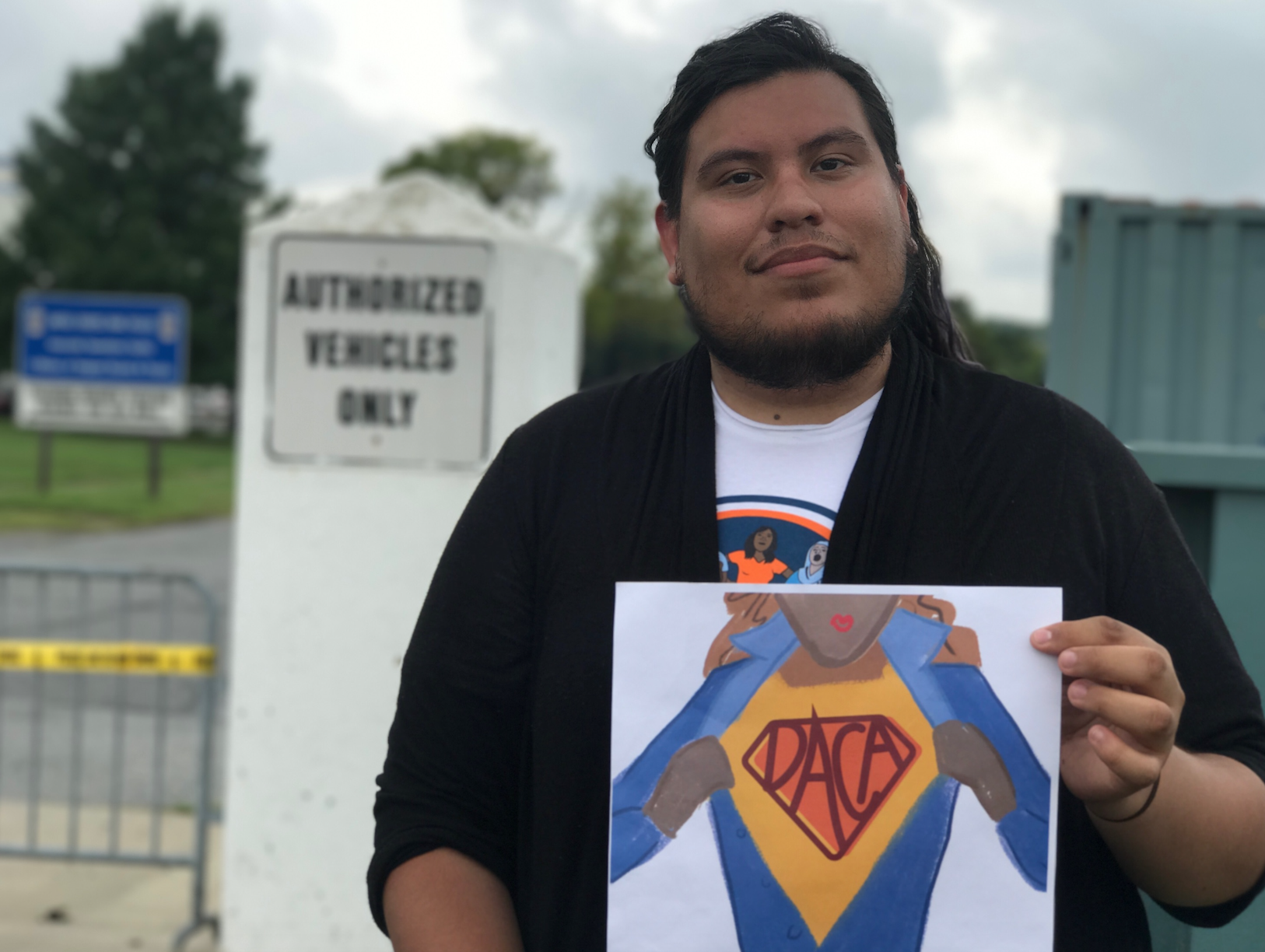
I came here in 1998 when I was 5-years old. My family moved to Plant City, Florida where my dad had come on a worker’s visa and started a construction company. My mom was a surgical nurse in Mexico but when she got here, she started cleaning houses and businesses for a living.
I adapted pretty well. To me, everything was great. I was going to school everything was normal. We had the American life. In 2006 on a very early morning I was woken up with my mom screaming from the living room not to get up. I saw flashlights running through house and the lights going to my parents bedrooms. There were two ICE agents taking my dad away from us. It got real for us. My mom was afraid they were coming back for us. We moved and stayed with friends and family members. After a month or so we found out my dad was deported.
After that, I pretty much I can’t say I went through a depression per se, but it was really hard. When I lost my father to deportation I also lost my mom. She had to take more than 3 jobs at a time from cleaning clinics to houses. The only thing I could do was to do well in school. I graduated high school and needed to work so I couldn’t go to college. It was hard not to go to college. I had long conversations with my mother. She wanted me to go to school but I couldn’t not help.
I vividly remember the day when DACA was announced. I can’t even describe the feeling. When I found out about it my friend was watching President Obama in Spanish and there were bullet points that went up with what requirements you’d need. I knew I qualified and thought my life was about to change. But it was an interesting feeling. I was really excited. I was really scared. I knew I qualified but I knew others that didn’t qualify. It was really bittersweet.
The moment when I was turning in my application we were going to a free DACA clinic in my hometown after dinner. I was nervous to sign a paper that could change my life. So I practiced my signature on a napkin over and over again. Signing an application and giving it to my mom was the best feeling in my life. There’s a picture my mom signing that application. My mom got a sense of relief that at least he was not going to get deported.
I haven’t seen my dad in years. We always had communication throughout those years but I could not travel back to Mexico. We talk together on Google Hangouts and through technology. But it doesn’t replace the fact that my life was forever affected. We were all uprooted once he was deported. We lost our house, his business went down. This f***ing sucks, right? But in a way, if that moment didn’t happen I wouldn’t be such an activist and helping with this movement of finding rights for people like me.
When I first heard about the announcement from Trump I was like oh s*** how am I going to tell my mom? But what makes me hopeful is seeing the 100 of thousands of people marching, the 159 events nationwide, seeing all of those photos and taking action support of immigrant community gives me hope. I would like to tell these people they are not alone. They will not stop fighting. There are a ton of resources that will help them out. WeAreHereToStay.org is one place and there’s going to be a ton of resources there.
But let me just say this: with or without DACA, our community is here to stay. We are here fighting until our undocumented reality is reversed. That day will come.

